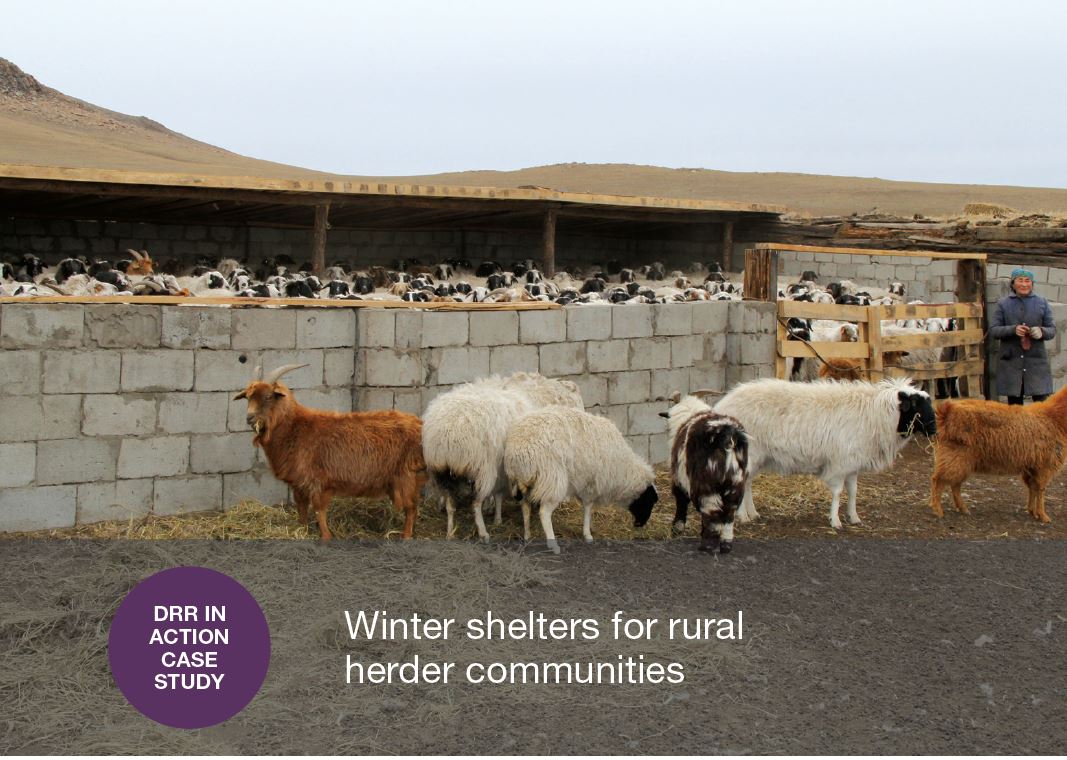Winter shelters for rural herder communities

Mongolian Red Cross Society (MRCS) has been implementing a community-based disaster risk reduction project since 2014, with support from the International Federation of Red Cross and Red Crescent Societies (IFRC) and the Australian Red Cross.
The harsh winter climate in Mongolia, where temperatures can reach as low as -40 degrees Celsius in winter, has potentially massive effects for rural herder communities who rely on the survival of their livestock for their income. In the winter of 2009 – 2010,
The project aims to reduce the impact of disasters on vulnerable communities in Mongolia through sustainable risk reduction and resilience building interventions. Its purpose is to strengthen the collective capacity of MRCS, government authorities and communities, in localized disaster preparation and response across each province in Mongolia.
